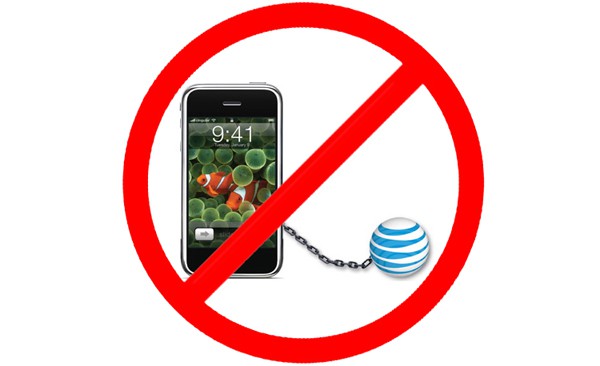AT&T lost its iPhone monopoly, and may soon lose a million or two customers, to Verizon. But I think Verizon’s freshly announced support for the iPhone is on balance a very good thing for AT&T.
Estimates for how many current AT&T customers will switch to Verizon range from half a million (Barclays Capital analyst James Ratcliffe) to 6 million (Davenport & Company analyst Drake Johnstone). The likely number is probably somewhere between 1 and 2 million customers. (Full disclosure: My wife works for AT&T Interactive, a division of AT&T.)
AT&T Mobility currently has more than 93 million customers, and often gains somewhere between 2 and 3 million customers per quarter. So the loss of say, 2 million customers is significant but by no means catastrophic.
But what does AT&T gain?
AT&T Gets the Best Customers
The most active and engaged customers will self-select their networks based on their needs. Active business travelers who use iPhones will stick with AT&T, while many active power users will embrace Verizon.
For the heaviest data users, AT&T will be more expensive because only Verizon offers unlimited data. Also: AT&T charges a monthly fee of $20 per month for tethering, while Verizon offers Wi-Fi hotspot tethering of up to 5 devices. At post time, it’s not clear what Verizon will charge, if anything, for hotspot tethering, but if they do charge something for it, that cost will likely be far below the AT&T fee.
Frequent business travelers tend to expense their cell phone bills. So additional fees for heavy data and tethering? No big deal. The company pays for it.
This is the best kind of customer, because the decision-maker isn’t the one footing the bills.
Also: AT&T iPhones are GSM phones, so you can sign up for the international roaming plans and both make calls and surf the Web while traveling abroad. It costs a fortune, but, again, many of the people who use this feature are expensing it.
As a result of these policies and services, AT&T still has a monopoly on the best iPhone users — the ones willing to pay through the nose for tethering and International service.
Meanwhile, the heavy data-using cheapskates will leave AT&T and go you-know-where.
So to over-simplify, the best customers — the ones who spend a lot of money and don’t care — will choose AT&T. The worst customers — the heavy network users who don’t want to pay more — will move to Verizon.
There is something like the 80-20 rule at work in network usage. A minority of users gobble up the majority of bandwidth on the network. Because the majority of that minority will probably move to Verizon, AT&T’s network will benefit far more than the numbers of lost customers might suggest — and Verizon’s will suffer more than the number of new customers might suggest.
AT&T Gets to Improve its Bad Reputation
While AT&T benefited financially from its monopoly of iPhone support in the United States, its reputation suffered badly.
It turned out that iPhone users are the heaviest users of Internet traffic. We’re a taxing lot to have on a network — and expensive and difficult to support. AT&T scrambled to support this community, investing heavily and constantly to keep up with radically increasing demand over the past few years. Still, the investment wasn’t enough, and customers complained.
Strain on the network, combined with the fact of monopoly, created enormous animosity against AT&T.
AT&T had to suffer the humiliation of late-night talk show monologues. It became common knowledge in tech circles that “AT&T sucks.”
Users unhappy with AT&T felt coerced, and vented their rage at the company. Now that users have choice, many will stick to AT&T, but will “think different” about the company. Now everyone using an iPhone on AT&T is doing so by choice. Even those unhappy with AT&T will have no credibility if they complain about the carrier. So they won’t complain nearly as much.
Now that Verizon supports the iPhone, we pundits have to stop saying things like “the only bad thing about the iPhone is AT&T.”
On the flip side, Verizon’s reputation may suffer when it has to support iPhone users — and as I said above, the heaviest data users.
As AT&T’s network improves when the power users leave, and Verizon’s is burdened, the existing reputations (AT&T is horrible, Verizon is wonderful) will dissolve. And that’s good for AT&T in the long run.
AT&T lost its monopoly on the iPhone. And that’s great news for AT&T. It’s still got a monopoly on the most profitable users. And the worst customers — annoying power users who tax the hell of the network but don’t want to pay extra — will go to Verizon. And the long nightmare of public scorn and ridicule that resulted from being the only U.S. company supporting the iPhone will soon be over.
The iPhone is now on Verizon. Congratulations, AT&T!


